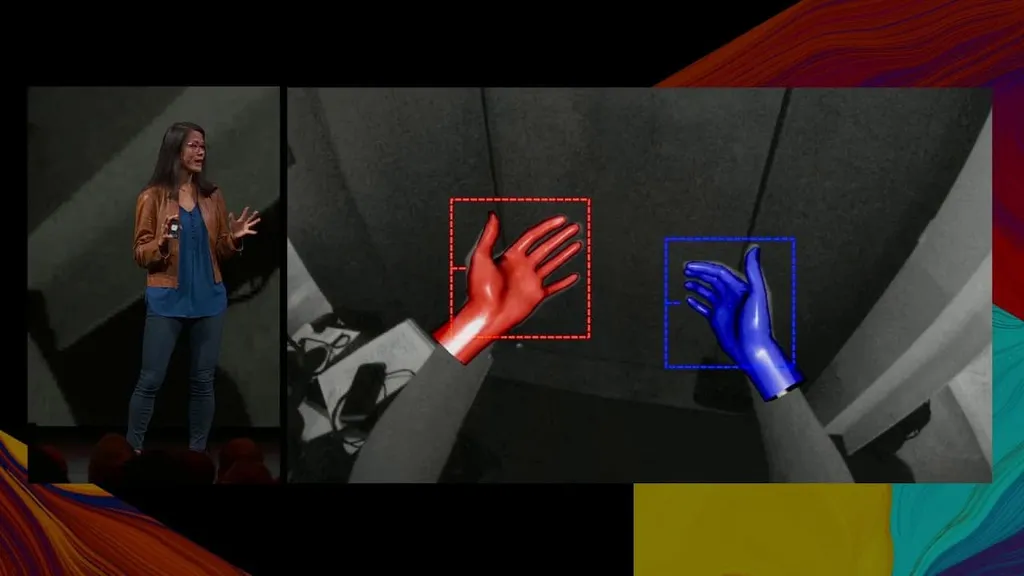The upcoming Hand Tracking feature for Oculus Quest reduces battery life by just 7 minutes, according to Facebook.
Hand Tracking was announced during the week at Oculus Connect 6, Facebook’s annual VR/AR conference. Releasing early next year, it will allow users to interact with the Quest menu and supported apps without using the Touch controllers.
During the developer talk ‘Hand Tracking Deep Dive: Technology, Design, and Experiences’, Engineering Manager Robert Wang explained that keeping power usage low was a top priority in developing the feature.
![]()
Part of the explanation for this is that Hand Tracking cannot be used at the same time as Touch Controllers. The headset tracks the user’s fingers or their Touch controllers, but not both at once. Thus, the normal power usage of controller tracking is not present.
The team used breakthroughs from recently published machine learning papers such as depthwise convolutions and inverted residual networks. They also used 8 bit integers instead of floating point numbers.
This is the first time we’ve seen finger tracking in a standalone headset. HTC’s Vive Focus offers basic hand tracking but rather than tracking individual fingers it only recognizes a set of predefined gestures.
With Facebook’s Hand Tracking confirmed to not have a significant impact on battery life, media apps like BigScreen and passive experiences should be able to make hand tracking their default input method and still let users play for hours. This also opens up the potential of a successor to the Oculus Go for which hand tracking is the only included input.


























